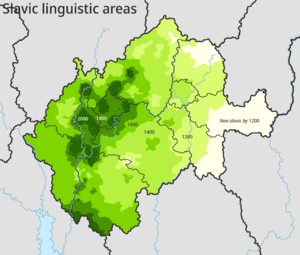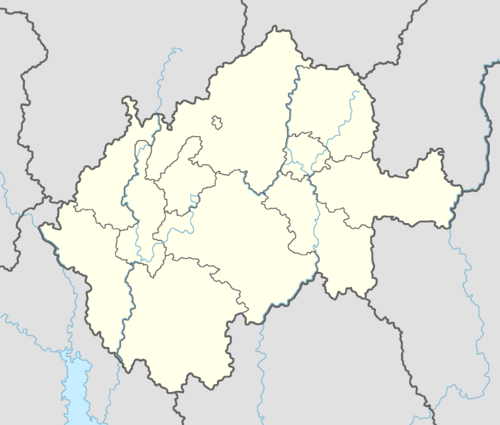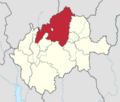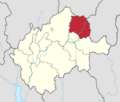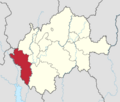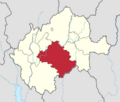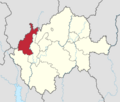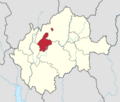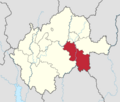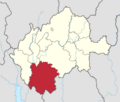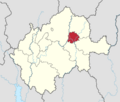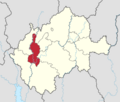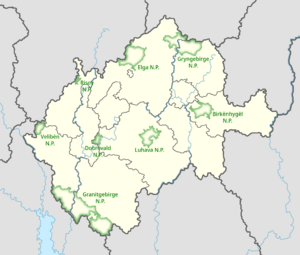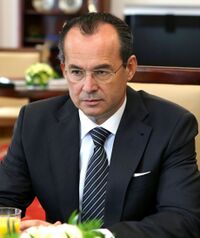Walneria: Difference between revisions
mNo edit summary |
m (Added category about CDANA membership) |
||
| (15 intermediate revisions by 3 users not shown) | |||
| Line 10: | Line 10: | ||
| rowclass1 = mergedrow | label1 = [[Jalov dialect|Jalovan]]: | data1 = ''Rąsberiẜe Įdgeno§enẜaft'' | | rowclass1 = mergedrow | label1 = [[Jalov dialect|Jalovan]]: | data1 = ''Rąsberiẜe Įdgeno§enẜaft'' | ||
| rowclass2 = mergedrow | label2 = [[wikipedia:Lower Sorbian language|Lower Malenik]]: | data2 = ''Skopińsko přiseźeństwo'' | | rowclass2 = mergedrow | label2 = [[wikipedia:Lower Sorbian language|Lower Malenik]]: | data2 = ''Skopińsko přiseźeństwo'' | ||
| rowclass3 = mergedrow | label3 = [[wikipedia:Volapük|Stedorian]]: | data3 = '' | | rowclass3 = mergedrow | label3 = [[wikipedia:Volapük|Stedorian]]: | data3 = ''Fedakompenän Roberiänik'' | ||
| rowclass4 = mergedrow | label4 = [[wikipedia:Upper Sorbian|Upper Malenik]]: | data4 = ''Skopinsko pśisežeństwo'' | | rowclass4 = mergedrow | label4 = [[wikipedia:Upper Sorbian|Upper Malenik]]: | data4 = ''Skopinsko pśisežeństwo'' | ||
| rowclass5 = mergedrow | label5 = [[wikipedia:Czech language|Ustokan]]: | data5 = ''Skopiňské zpříseženství'' | | rowclass5 = mergedrow | label5 = [[wikipedia:Czech language|Ustokan]]: | data5 = ''Skopiňské zpříseženství'' | ||
| Line 16: | Line 16: | ||
|common_name = Walneria<!--Common name in English (used for wikilinks, captions, and to produce a default iso3166 code)--> | |common_name = Walneria<!--Common name in English (used for wikilinks, captions, and to produce a default iso3166 code)--> | ||
|status = <!--Status of country, especially useful for micronations--> | |status = <!--Status of country, especially useful for micronations--> | ||
|image_flag = [[File:WalneriaFlag.png|border| | |image_flag = [[File:WalneriaFlag.png|border|125px]]<!--e.g. Flag of country.svg--> | ||
|alt_flag = <!--alt text for flag (text shown when pointer hovers over flag)--> | |alt_flag = <!--alt text for flag (text shown when pointer hovers over flag)--> | ||
|flag_border = <!--set to no to disable border around the flag--> | |flag_border = <!--set to no to disable border around the flag--> | ||
| Line 22: | Line 22: | ||
|alt_flag2 = <!--alt text for second flag--> | |alt_flag2 = <!--alt text for second flag--> | ||
|flag2_border = <!--set to no to disable border around the flag--> | |flag2_border = <!--set to no to disable border around the flag--> | ||
|image_coat = [[File:WalneriaCoat.png| | |image_coat = [[File:WalneriaCoat.png|75px]]<!--e.g. Coat of arms of country.svg--> | ||
|alt_coat = <!--alt text for coat of arms--> | |alt_coat = <!--alt text for coat of arms--> | ||
|symbol_type = Coat of arms<!--emblem, seal, etc (if not a coat of arms)--> | |symbol_type = Coat of arms<!--emblem, seal, etc (if not a coat of arms)--> | ||
|national_motto = Curyk Veltëm mit Myheŕ<!--in inverted commas and wikilinked if link exists--> | |national_motto = Curyk Veltëm mit Myheŕ<!--in inverted commas and wikilinked if link exists--> | ||
|englishmotto = | |englishmotto = "Back to the {{Hover title|dotted=no|world|wurld}} with dedication"<!--English language version of motto--> | ||
|national_anthem = [[wikipedia:Waves of the Danube|The Waltz of Justice]] | |national_anthem = Tér Valc Pravhaits<br>"[[wikipedia:Waves of the Danube|The Waltz of Justice]]"<br>[[File:MediaPlayer.png|link=https://www.youtube.com/watch?v=BD7iUoJP5pc]]<!--in inverted commas and wikilinked if link exists--> | ||
|royal_anthem = <!--in inverted commas and wikilinked if link exists--> | |royal_anthem = <!--in inverted commas and wikilinked if link exists--> | ||
|other_symbol_type = <!--Use if a further symbol exists, e.g. hymn--> | |other_symbol_type = <!--Use if a further symbol exists, e.g. hymn--> | ||
|other_symbol = | |other_symbol = | ||
|image_map = WalneriaGlobe.png<!--e.g. LocationCountry.svg--> | |image_map = [[File:WalneriaGlobe.png|250px]]<!--e.g. LocationCountry.svg--> | ||
|loctext = <!--text description of location of country--> | |loctext = <!--text description of location of country--> | ||
|alt_map = Position of Walneria<!--alt text for map--> | |alt_map = Position of Walneria<!--alt text for map--> | ||
| Line 48: | Line 48: | ||
|largest_settlement_type = <!--Type of settlement if largest settlement not a city--> | |largest_settlement_type = <!--Type of settlement if largest settlement not a city--> | ||
|largest_settlement = <!--Name of largest settlement--> | |largest_settlement = <!--Name of largest settlement--> | ||
|official_languages = [[Walnerian language|Walnerian]]<br>[[Walnerian Sign Language]]<!--Languages recognised in legislation, constitution, etc--> | |official_languages = [[Walnerian language|Walnerian]]<br>[[Walnerian Sign Language|Walnerian Sign Language]]<!--Languages recognised in legislation, constitution, etc--> | ||
|national_languages = <!--Country/territory-wide languages recognised but not necessarily in country/territory-wide law, etc--> | |national_languages = <!--Country/territory-wide languages recognised but not necessarily in country/territory-wide law, etc--> | ||
|regional_languages = [[ | |regional_languages = [[Ustokan language|Ustokan]]<br>[[Upper Malenik language|Upper Malenik]]<!--<br>[[wikipedia:German language|Dolch]]--><br>[[Lower Malenik language|Lower Malenik]]<br>[[Stedorian language|Stedorian]]<br>[[Ustokan Sign Language|Ustokan Sign Language]]<!--Languages recognised or associated with particular regions within the country/territory--> | ||
|languages_type = <!--Use to specify a further type of language, if not official, national or regional--> | |languages_type = <!--Use to specify a further type of language, if not official, national or regional--> | ||
|languages = <!--Languages of the further type--> | |languages = <!--Languages of the further type--> | ||
| Line 66: | Line 66: | ||
|government_type = <!--(often a compound multi-wikilinked term, e.g. "Federal semi-presidential constitutional republic", etc)--> | |government_type = <!--(often a compound multi-wikilinked term, e.g. "Federal semi-presidential constitutional republic", etc)--> | ||
|leader_title1 = President<!--(for a country, usually the head of state's (wikilinked) title, e.g. "President", "Monarch")--> | |leader_title1 = President<!--(for a country, usually the head of state's (wikilinked) title, e.g. "President", "Monarch")--> | ||
|leader_name1 = Gyntŕ Ssvarc | |leader_name1 = [[Gyntŕ Ssvarc]] | ||
|leader_title2 = Prime Minister<!--(could be "Vice President", otherwise "Prime Minster", etc, etc)--> | |leader_title2 = Prime Minister<!--(could be "Vice President", otherwise "Prime Minster", etc, etc)--> | ||
|leader_name2 = Zimón Novak | |leader_name2 = [[Zimón Novak]] | ||
|leader_title14 = <!--(up to 14 distinct leaders may be included)--> | |leader_title14 = <!--(up to 14 distinct leaders may be included)--> | ||
|leader_name14 = | |leader_name14 = | ||
| Line 91: | Line 91: | ||
|area_label2 = <!--Label below area_label (optional)--> | |area_label2 = <!--Label below area_label (optional)--> | ||
|area_data2 = <!--Text after area_label2 (optional)--> | |area_data2 = <!--Text after area_label2 (optional)--> | ||
|population_estimate = | |population_estimate = [[Template:PopWalneriaNum|{{formatnum:{{PopWalneriaNum}}}}]] | ||
|population_estimate_rank = | |population_estimate_rank = | ||
|population_estimate_year = 2021 | |population_estimate_year = 2021 | ||
|population_census = | |population_census = 10,595,040 | ||
|population_census_year = 2018 | |population_census_year = 2018 | ||
|population_density_km2 = | |population_density_km2 = | ||
| Line 100: | Line 100: | ||
|population_density_rank = | |population_density_rank = | ||
|nummembers = <!--An alternative to population for micronation--> | |nummembers = <!--An alternative to population for micronation--> | ||
|GDP_PPP = {{formatnum:{{#expr:({{GDPWalneriaPPP}}*{{PopWalneriaNum}})/1000000000round2}}}} billion [[wikipedia:International dollar| | |GDP_PPP = {{formatnum:{{#expr:({{GDPWalneriaPPP}}*{{PopWalneriaNum}})/1000000000round2}}}} billion [[wikipedia:International dollar|{{Hover title|dotted=no|International Solidus|Int$}}]]<br>({{formatnum:{{#expr:(({{GDPWalneriaPPP}}*{{PopWalneriaNum}})/1000000000)/{{KróneConRate}}round2}}}} billion [[Walnerian Króne|WKR]]{{efn|name=Currency|Accurate as of [[Template:KróneConRate|{{Plain now}}]], data taken from the [[Walnerian Central Bank]]}}) <!--(Gross Domestic Product from Purchasing Power Parity)--> | ||
|GDP_PPP_rank = | |GDP_PPP_rank = | ||
|GDP_PPP_year = | |GDP_PPP_year = | ||
|GDP_PPP_per_capita = [[Template:GDPWalneriaPPP|{{formatnum:{{#expr:{{GDPWalneriaPPP}}round0}}}}]] [[wikipedia:International dollar| | |GDP_PPP_per_capita = [[Template:GDPWalneriaPPP|{{formatnum:{{#expr:{{GDPWalneriaPPP}}round0}}}}]] [[wikipedia:International dollar|{{Hover title|dotted=no|International Solidus|Int$}}]]<br>({{formatnum:{{#expr:({{GDPWalneriaPPP}})/{{KróneConRate}}round0}}}} [[Walnerian Króne|WKR]]{{efn|name=Currency}}) | ||
|GDP_PPP_per_capita_rank = | |GDP_PPP_per_capita_rank = | ||
|GDP_nominal = {{formatnum:{{#expr:({{GDPWalneriaNom}}*{{PopWalneriaNum}})/1000000000round2}}}} billion [[wikipedia:United States dollar| | |GDP_nominal = {{formatnum:{{#expr:({{GDPWalneriaNom}}*{{PopWalneriaNum}})/1000000000round2}}}} billion [[wikipedia:United States dollar|{{Hover title|dotted=no|Adapton Solidus|AD$}}]]<br>({{formatnum:{{#expr:(({{GDPWalneriaNom}}*{{PopWalneriaNum}})/1000000000)/{{KróneConRate}}round2}}}} billion [[Walnerian Króne|WKR]]{{efn|name=Currency}}) | ||
|GDP_nominal_rank = | |GDP_nominal_rank = | ||
|GDP_nominal_year = | |GDP_nominal_year = | ||
|GDP_nominal_per_capita = [[Template:GDPWalneriaNom|{{formatnum:{{#expr:{{GDPWalneriaNom}}round0}}}}]] [[wikipedia:United States dollar| | |GDP_nominal_per_capita = [[Template:GDPWalneriaNom|{{formatnum:{{#expr:{{GDPWalneriaNom}}round0}}}}]] [[wikipedia:United States dollar|{{Hover title|dotted=no|Adapton Solidus|AD$}}]]<br>({{formatnum:{{#expr:{{GDPWalneriaNom}}/{{KróneConRate}}round0}}}} [[Walnerian Króne|WKR]]{{efn|name=Currency}}) | ||
|GDP_nominal_per_capita_rank = | |GDP_nominal_per_capita_rank = | ||
|Gini = 28 <!--(Gini measure of income inequality; input number only; valid values are between 0 and 100)--> | |Gini = 28 <!--(Gini measure of income inequality; input number only; valid values are between 0 and 100)--> | ||
| Line 141: | Line 141: | ||
|footnote_b = <!--For any footnote <sup>b</sup> used above--> | |footnote_b = <!--For any footnote <sup>b</sup> used above--> | ||
|footnote_h = <!--For any footnote <sup>h</sup> used above--> | |footnote_h = <!--For any footnote <sup>h</sup> used above--> | ||
|footnotes = | |footnotes = {{notelist}} <!--For any generic non-numbered footnotes--> | ||
}} | }} | ||
'''Walneria''' ([[Walnerian language|Walnerian]]: ''Rósberland''), officially the '''Confederacy of Walneria''' ([[Walnerian language|Walnerian]]: ''Rósberisse Konfederación'') is a country located on the continent of [[Argis]], bordering [[Stedoria]] and [[Thransaltz]] to the east, [[Sawbrania]] to the south, [[Dazhdinia]] to the west and [[Malskia]] and [[Littland]] to the north. It is a democratic unicameral neutral country. | '''Walneria''' ([[Walnerian language|Walnerian]]: ''Rósberland''), officially the '''Confederacy of Walneria''' ([[Walnerian language|Walnerian]]: ''Rósberisse Konfederación'') is a country located on the continent of [[Argis]], bordering [[Stedoria]] and [[Thransaltz]] to the east, [[Sawbrania]] to the south, [[Dazhdinia]] to the west and [[Malskia]] and [[Littland]] to the north. It is a democratic unicameral neutral country. | ||
| Line 160: | Line 160: | ||
===Religious conflict=== | ===Religious conflict=== | ||
{{Main|Entenian Wars}} | {{Main|Entenian Wars}} | ||
The [[Entenian Wars]] was a series of conflicts between {{wp|Catholic Church|Catholic}} royalty and a newly formed {{wp|Proto-Protestantism|proto-protestant}} movement, which gained traction under the preacher Peter Ente ([[Walnerian language|Walnerian]]: ''Petŕ Ente''; | The [[Entenian Wars]] was a series of conflicts between {{wp|Catholic Church|Catholic}} royalty and a newly formed {{wp|Proto-Protestantism|proto-protestant}} movement, which gained traction under the preacher Peter Ente ([[Walnerian language|Walnerian]]: ''Petŕ Ente''; [[Ustokan language|Ustokan]]: ''Petr Ent''), which eventually ended with the siege of [[Tyrámen|Rámovny]] in 1439. As a result of this conflict, many people were displaced by either fleeing local lords due to their faith or by being moved with their lord with reassignment to a new fiefdom. | ||
With the regions intermingled in many areas and a possible resurgence of religious tensions, the king Ignatio III. passed multiple decrees, which labelled "Entist faiths" to be on equal footing with {{wp|Catholic Church|Catholicism}}. By the end of the 15th century, more than 3/4 of the country were Entist. | With the regions intermingled in many areas and a possible resurgence of religious tensions, the king Ignatio III. passed multiple decrees, which labelled "Entist faiths" to be on equal footing with {{wp|Catholic Church|Catholicism}}. By the end of the 15th century, more than 3/4 of the country were Entist. | ||
===Zusamëlfasunk=== | ===Zusamëlfasunk=== | ||
{{Main|Walnerian language#Zusamëlfasunk|l1=Zusamëlfasunk}}{{See also|Walnerian language#History|l1=History of the Walnerian language}} | {{Main|Walnerian language#Zusamëlfasunk|l1=Zusamëlfasunk}}{{See also|Walnerian language#History|l1=History of the Walnerian language}} | ||
In [[Entenian Wars|the conflict]], Yasic settlements suffered heavy losses and were effectively destroyed, which resulted in Dolch settlers moving further back in. [[Walnerian language|Walnerian]] term "Zusamëlfasunk" (Literally "Fitting together") describes a process, in which the former Yasic settlers slowly Germanized and influenced the Dolch language in the area in process. The result was a version of the {{wp|German language|Dolch language}}, which was heavily {{wp|Slavicisation|Yasicised}} in phonology and orthography, as well as influencing the grammar and vocabulary (Example may include | In [[Entenian Wars|the conflict]], Yasic settlements suffered heavy losses and were effectively destroyed, which resulted in Dolch settlers moving further back in. [[Walnerian language|Walnerian]] term "Zusamëlfasunk" (Literally "Fitting together") describes a process, in which the former Yasic settlers slowly Germanized and influenced the Dolch language in the area in process. The result was a version of the {{wp|German language|Dolch language}}, which was heavily {{wp|Slavicisation|Yasicised}} in phonology and orthography, as well as influencing the grammar and vocabulary (Example may include [[Ustokan language|Ustokan]] ''obraz'' → [[Walnerian language|Walnerian]] ''obrós'' (in contrast to {{wp|German language|Dolch}} ''Bild'')). | ||
The resulting language was named of the country "[[Walnerian language|Walnerian]]" and quickly spread to many more Yasic settlements. By mid 18th century, {{wp|Obotrites|Rolamen}} Slavs were fully Germanised, while {{wp|Sorbs|Malenik}} and {{wp|Czechs|Ustokan}} linguistic areas were shrunk to only disconnected linguistic islands. | The resulting language was named of the country "[[Walnerian language|Walnerian]]" and quickly spread to many more Yasic settlements. By mid 18th century, {{wp|Obotrites|Rolamen}} Slavs were fully Germanised, while {{wp|Sorbs|Malenik}} and {{wp|Czechs|Ustokan}} linguistic areas were shrunk to only disconnected linguistic islands. | ||
====Cultural resistance==== | ====Cultural resistance==== | ||
At the end of the 18th century, a movement arose among the Yasic settlers, which aimed to stop the {{wp|Germanisation|Germanisation}} of their linguistic areas. The so called "Ustokan rebirth" and "Malenik rebirth" were processes, where Ustokan and Malenik linguists tried reforming the language and creating/taking new words from other {{wp|Slavic languages|Yasic languages}} to replace {{wp|Germanism (linguistics)|Dolchisms}} (Example may include | At the end of the 18th century, a movement arose among the Yasic settlers, which aimed to stop the {{wp|Germanisation|Germanisation}} of their linguistic areas. The so called "Ustokan rebirth" and "Malenik rebirth" were processes, where Ustokan and Malenik linguists tried reforming the language and creating/taking new words from other {{wp|Slavic languages|Yasic languages}} to replace {{wp|Germanism (linguistics)|Dolchisms}} (Example may include [[Ustokan language|Ustokan]] ''luft'' → ''vzduĥ'' (from {{wp|Russian language|Russian}} ''{{Hover title|vozduha|воздуха}}'')). | ||
At the same time, Ustokan and Malenik authors started writing books and newsletters in their native languages, which boosted the cultural life in Yasic areas - some theatres started introducing plays in their Yasic languages. This linguistic purism launched patriotism, which de facto weakened the Walnerian position in Germanisation and de facto established the linguistic islands in which the Yasic languages are spoken today in Walneria. | At the same time, Ustokan and Malenik authors started writing books and newsletters in their native languages, which boosted the cultural life in Yasic areas - some theatres started introducing plays in their Yasic languages. This linguistic purism launched patriotism, which de facto weakened the Walnerian position in Germanisation and de facto established the linguistic islands in which the Yasic languages are spoken today in Walneria. | ||
| Line 199: | Line 199: | ||
[[File:WalneriaElectoralRegions.png|thumb|Electoral regions respecting the settlement areas]] | [[File:WalneriaElectoralRegions.png|thumb|Electoral regions respecting the settlement areas]] | ||
After the 2000 Constitutional Amendment passed in a [[1999 Walernian Constitutional Referendum|referendum from the year prior]], two autonomies for the ethnic [[wikipedia:Czechs|Ustokans]] and [[wikipedia:Sorbs|Maleniks]] were formed in the areas, where their population is the biggest. In those regions, [[ | After the 2000 Constitutional Amendment passed in a [[1999 Walernian Constitutional Referendum|referendum from the year prior]], two autonomies for the ethnic [[wikipedia:Czechs|Ustokans]] and [[wikipedia:Sorbs|Maleniks]] were formed in the areas, where their population is the biggest. In those regions, [[Ustokan language|Ustokan]], [[Lower Malenik language|Lower Malenik]] and [[Upper Malenik language|Upper Malenik]] are the official languages alongside [[Walnerian language|Walnerian]]. Local assemblies (unlike other regions) have far larger powers, such as the right to run [[wikipedia:Referendum|local referendums]], plebiscites and pass [[wikipedia:Initiative|initiatives]] in almost any field with the direct approval of the [[Government of Walneria|central government]]. | ||
| Line 314: | Line 314: | ||
{{Eurth}} | {{Eurth}} | ||
[[Category:Walneria]] | [[Category:Walneria]] | ||
[[Category: | [[Category:Countries in the Council of the Democratically-aligned nations of Argis]] | ||
Latest revision as of 10:50, 25 November 2023
This article is incomplete because it is pending further input from participants, or it is a work-in-progress by one author. Please comment on this article's talk page to share your input, comments and questions. Note: To contribute to this article, you may need to seek help from the author(s) of this page. |
Confederacy of Walneria Rósberisse Aidgenosënssaft
| |||||||||||
|---|---|---|---|---|---|---|---|---|---|---|---|
| Motto: Curyk Veltëm mit Myheŕ "Back to the wurld with dedication" | |||||||||||
| Anthem: Tér Valc Pravhaits "The Waltz of Justice" | |||||||||||
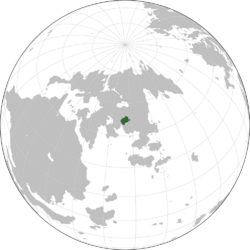 Location of Walneria in Argis | |||||||||||
| Capital | Tyrámen | ||||||||||
| Official languages | Walnerian Walnerian Sign Language | ||||||||||
| Recognised regional languages | Ustokan Upper Malenik Lower Malenik Stedorian Ustokan Sign Language | ||||||||||
| Government | |||||||||||
• President | Gyntŕ Ssvarc | ||||||||||
• Prime Minister | Zimón Novak | ||||||||||
| Legislature | National Assembly | ||||||||||
| Area | |||||||||||
• | 89,520 km2 (34,560 sq mi) | ||||||||||
• Water (%) | 2% | ||||||||||
| Population | |||||||||||
• 2021 estimate | 10,612,586 | ||||||||||
• 2018 census | 10,595,040 | ||||||||||
| GDP (PPP) | estimate | ||||||||||
• Total | 333.12 billion Int$ (5,328.93 billion WKR[a]) | ||||||||||
• Per capita | 31,389 Int$ (502,133 WKR[a]) | ||||||||||
| GDP (nominal) | estimate | ||||||||||
• Total | 327.09 billion AD$ (5,232.51 billion WKR[a]) | ||||||||||
• Per capita | 30,821 AD$ (493,048 WKR[a]) | ||||||||||
| Gini | 28 low | ||||||||||
| HDI | 0.897 very high | ||||||||||
| Currency | Walnerian Króne (Ԟ) (WKR) | ||||||||||
| Time zone | UTC-1:00 (DIT) | ||||||||||
• Summer (DST) | UTC+0:00 (DIST) | ||||||||||
| Calling code | +620 | ||||||||||
| ISO 3166 code | WN | ||||||||||
| Internet TLD | .wn | ||||||||||
| |||||||||||
Walneria (Walnerian: Rósberland), officially the Confederacy of Walneria (Walnerian: Rósberisse Konfederación) is a country located on the continent of Argis, bordering Stedoria and Thransaltz to the east, Sawbrania to the south, Dazhdinia to the west and Malskia and Littland to the north. It is a democratic unicameral neutral country.
History
Prehistory
TBA
Geltic and Dolchic eras
TBA
Yasic migration
At the beginning of the 7th century, the first Yasics started arriving from the west, quickly settling most of the area by the end of the 7th century. Early records show, that most of the cities and villages were majority Yasic. The newly formed duchies of Saldania (capital in Blanov), Walneria (capital in Kusnavice) and Kranelia (capital in Rámovny) were majority Yasic duchies.
Westsiedlung
In early 12th century, Dolchic people in the east initiated an activity named "Westsiedlung" (literally "Western settlement"), which included many Dolchic tribes, specially Middle High Dolch migrating into the territory of present day Walneria, creating multiple linguistic bridges and disrupting Yasic settlements. This process was mostly seen positively by the rulers of both duchies and the later formed Kingdom of Walneria, as incoming Dolchic settlers improved the strength and economy of the kingdom.
By the early 15th century, most border regions as well as the central highlands were majority Dolch, which is when the Entenian Wars happened.
Religious conflict
The Entenian Wars was a series of conflicts between Catholic royalty and a newly formed proto-protestant movement, which gained traction under the preacher Peter Ente (Walnerian: Petŕ Ente; Ustokan: Petr Ent), which eventually ended with the siege of Rámovny in 1439. As a result of this conflict, many people were displaced by either fleeing local lords due to their faith or by being moved with their lord with reassignment to a new fiefdom.
With the regions intermingled in many areas and a possible resurgence of religious tensions, the king Ignatio III. passed multiple decrees, which labelled "Entist faiths" to be on equal footing with Catholicism. By the end of the 15th century, more than 3/4 of the country were Entist.
Zusamëlfasunk
In the conflict, Yasic settlements suffered heavy losses and were effectively destroyed, which resulted in Dolch settlers moving further back in. Walnerian term "Zusamëlfasunk" (Literally "Fitting together") describes a process, in which the former Yasic settlers slowly Germanized and influenced the Dolch language in the area in process. The result was a version of the Dolch language, which was heavily Yasicised in phonology and orthography, as well as influencing the grammar and vocabulary (Example may include Ustokan obraz → Walnerian obrós (in contrast to Dolch Bild)).
The resulting language was named of the country "Walnerian" and quickly spread to many more Yasic settlements. By mid 18th century, Rolamen Slavs were fully Germanised, while Malenik and Ustokan linguistic areas were shrunk to only disconnected linguistic islands.
Cultural resistance
At the end of the 18th century, a movement arose among the Yasic settlers, which aimed to stop the Germanisation of their linguistic areas. The so called "Ustokan rebirth" and "Malenik rebirth" were processes, where Ustokan and Malenik linguists tried reforming the language and creating/taking new words from other Yasic languages to replace Dolchisms (Example may include Ustokan luft → vzduĥ (from Russian воздуха)).
At the same time, Ustokan and Malenik authors started writing books and newsletters in their native languages, which boosted the cultural life in Yasic areas - some theatres started introducing plays in their Yasic languages. This linguistic purism launched patriotism, which de facto weakened the Walnerian position in Germanisation and de facto established the linguistic islands in which the Yasic languages are spoken today in Walneria.
The other side of this is emigration. Currently, there are over 900,000 Ustokans and 320,000 Maleniks living in exile, which form a strong linguistic community, although some of them returned since 1980s autonomies were created.
Years of tyranny
TBA
Independence
TBA
Defensive war

Ever since the 1899 revolution, the new government got into political problems with Stedoria, which eventually escalated into a diplomatic feedback loop, which in turn lead to the war.
The war started on May 1st, 1939, when Stedorian forces crossed Walnerian border and advanced into the mainland, being successful in their offensive at first. After the first line of defence was breached, the Walnerian forces retreated to the second line. In Summer, the unsuccessful Walnerian offensive only complicated the situation, as forces on both sides were too exhausted to conduct any large attack. By autumn and in winter, the Stedorian forces deployed in the occupation zones crippled major shortages in clothing and food, as the supply lines and logistics crumbled, and they were forced into a retreat. In March the next year, the border was restored to the pre-war location and Walneria ended victorious in the defensive war.
Post-war development
TBA
Demographics
| Linguistic areas of Walneria | ||||||||||||||
|---|---|---|---|---|---|---|---|---|---|---|---|---|---|---|
| Chart of the languages | ||||||||||||||
Native languages in Walneria Walnerian (91.7%) Ustokan (3.6%) Upper Malenik (1.7%) Lower Malenik (1.6%) Stedorian (0.9%) Other (0.5%)
| ||||||||||||||
TBA
Settlement areas
After the 2000 Constitutional Amendment passed in a referendum from the year prior, two autonomies for the ethnic Ustokans and Maleniks were formed in the areas, where their population is the biggest. In those regions, Ustokan, Lower Malenik and Upper Malenik are the official languages alongside Walnerian. Local assemblies (unlike other regions) have far larger powers, such as the right to run local referendums, plebiscites and pass initiatives in almost any field with the direct approval of the central government.
TBA
Geography
TBA
Administrative divisions
| Regions of Walneria | |||||||||||||||||||||||||||||||||||||||||||||||||||||||
|---|---|---|---|---|---|---|---|---|---|---|---|---|---|---|---|---|---|---|---|---|---|---|---|---|---|---|---|---|---|---|---|---|---|---|---|---|---|---|---|---|---|---|---|---|---|---|---|---|---|---|---|---|---|---|---|
| Table of the regions | |||||||||||||||||||||||||||||||||||||||||||||||||||||||
| |||||||||||||||||||||||||||||||||||||||||||||||||||||||
TBA
Climate
TBA
Government and politics
Legislature
The legislature of Walneria is unicameral, with the National Assembly serving as the meeting place where laws are discussed and passed. The assembly has 129 seats, 80 of which are currently controlled by the governmental coalition of the Liberals (L.P.R.) and Christian Democrats (K.D.P.R.).
| National Assembly political distribution: | |||||
|---|---|---|---|---|---|
|
Assembly Speaker allegiance: L.P.R.
| |||||
| Color | Name of the Political Party | Nick used by the Political Party | Political direction | Number of seats | Affiliation |
| #00E3E0 | Liberal Party of Walneria | Liberals | Liberal centre-right | 57 | Coalition |
| #FFD500 | Christian Democratic Party of Walneria | Christian Democrats | Christian democracy | 23 | Coalition |
| #282FFF | National party of Walneria | Nationalists | Isolationism | 18 | Opposition |
| #3FB400 | Green Movement | Greens | Eco-centric centre-left | 11 | Unaffiliated |
| #FF8300 | Social Democratic Party of Walneria | Social Democrats | Populist mid-left | 8 | Opposition |
| #C60000 | Worker's Party of Walneria | Communists | Marxist far left | 6 | Opposition |
| #A100B4 | Party of National Rebirth | Rebirthists | Centrist anarchism | 4 | Unaffiliated |
| #545454 | Walneria First Movement | REBists | Far right | 2 | Opposition |
| Current Assembly Speaker: Dítmar Fissŕ | |||||
Executive
TBA
Judiciary
TBA
Presidency
TBA
Elections
TBA
International relations
TBA
Infrastructure
TBA
Culture
TBA
Economy
TBA



